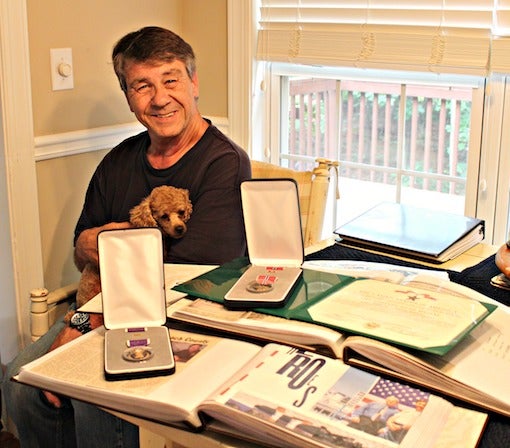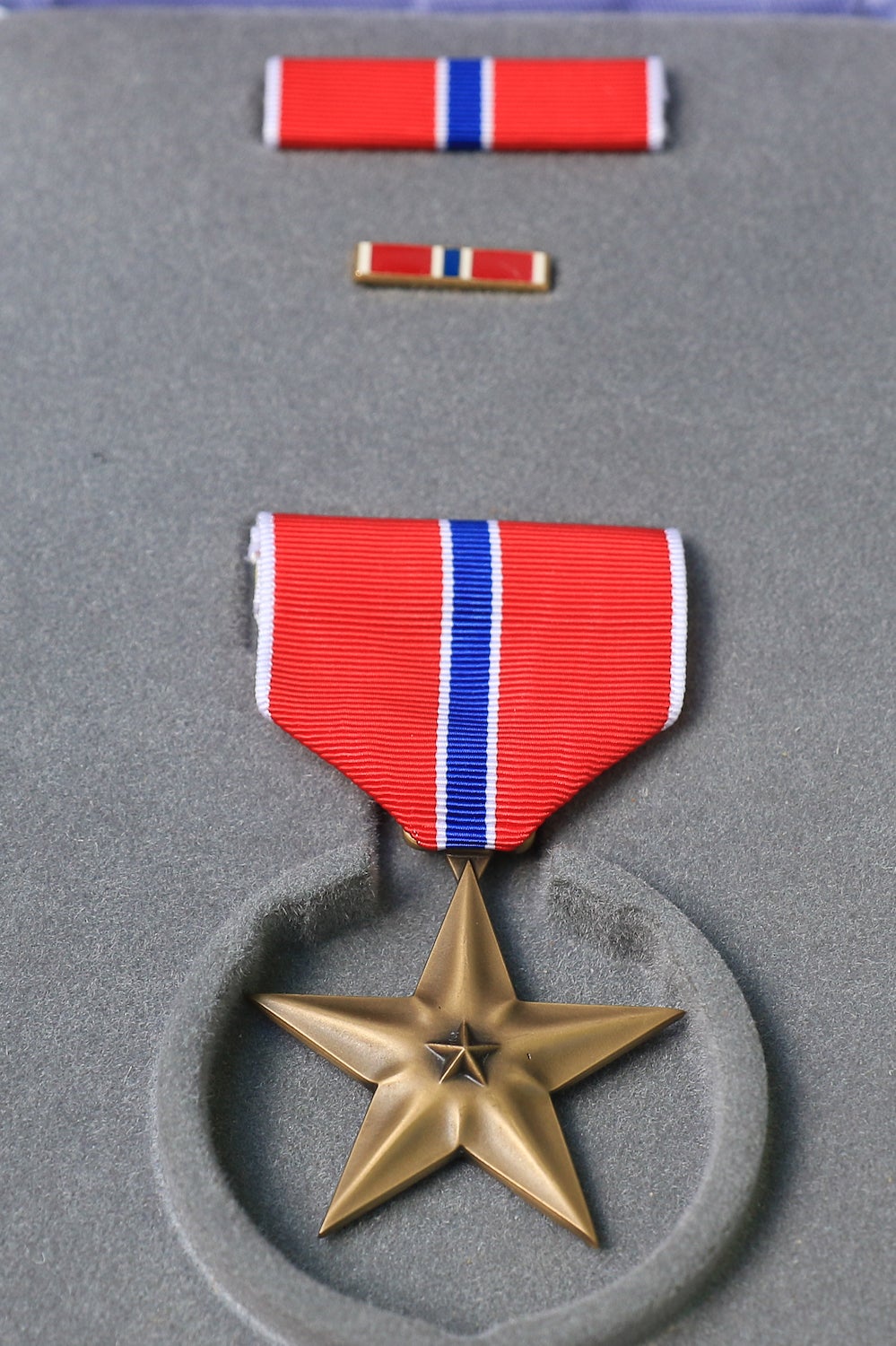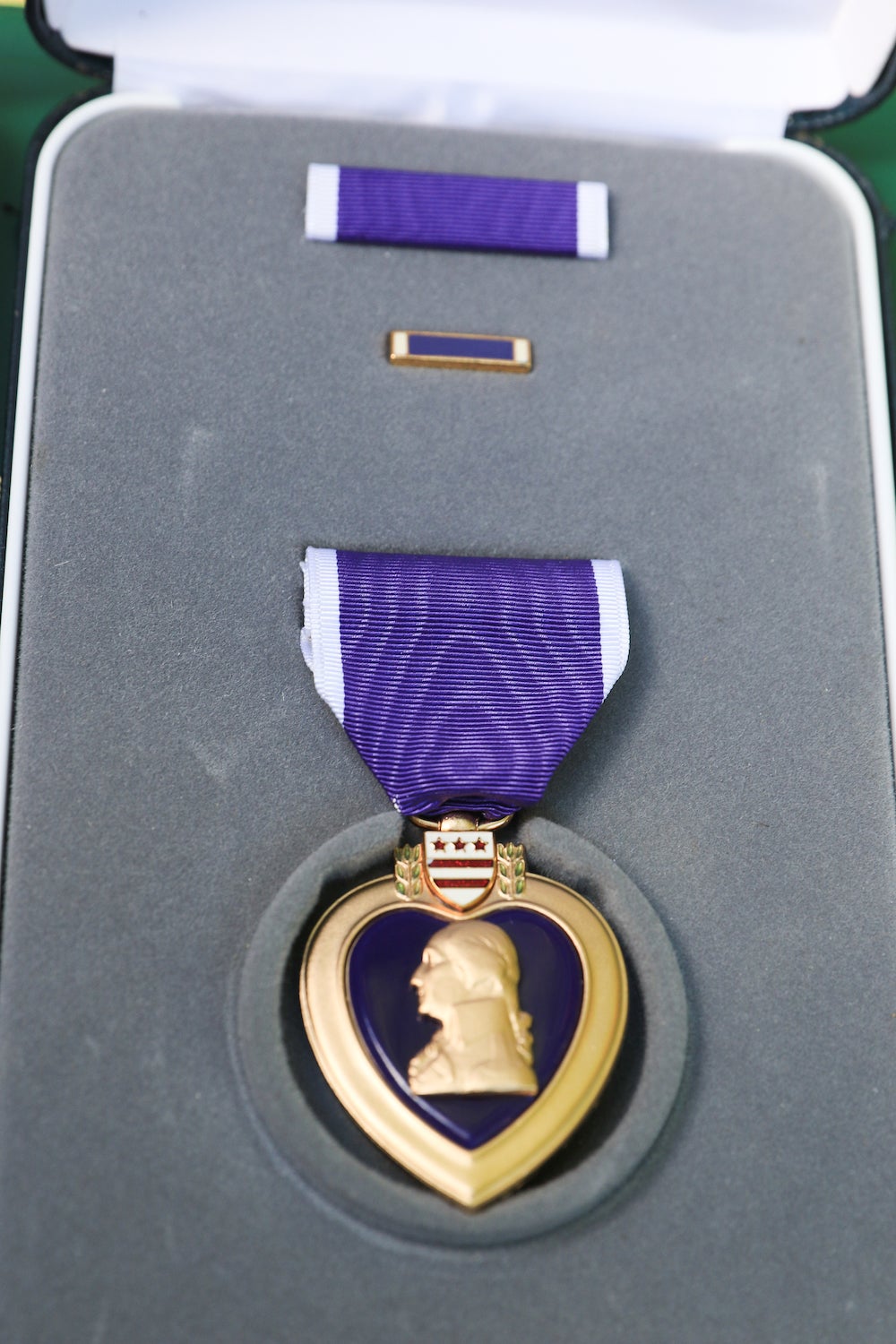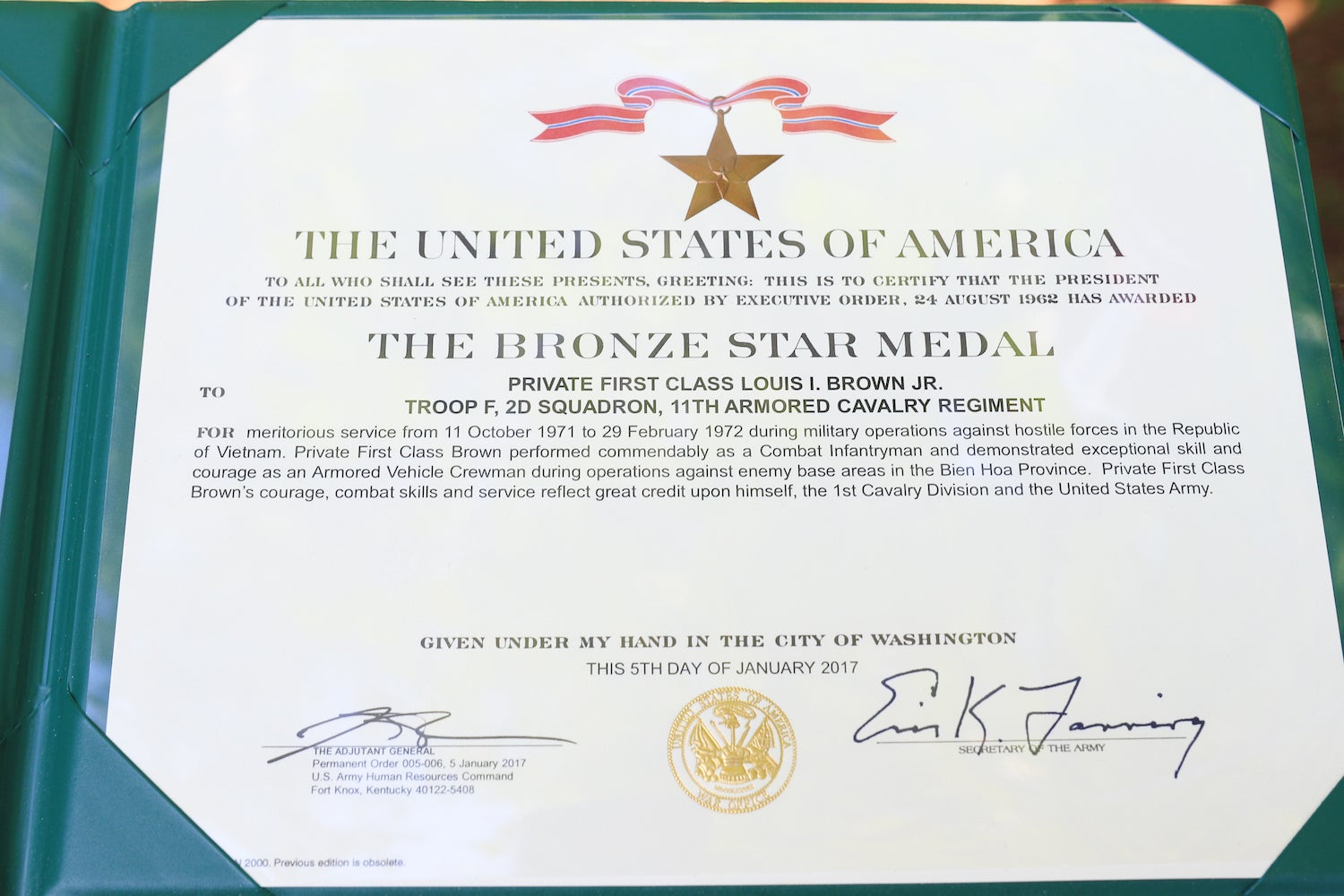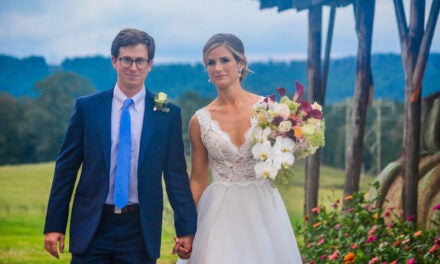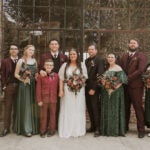A LIFE OF HEROIC ACHIEVEMENT
Veteran Skip Brown didn't talk about the Vietnam War for many years. It took him 45 to receive a Bronze Star.______________________
By René Day
Photos by Dawn Harrison
When you enter Louis I. (Skip) Brown’s home in Chelsea, the chorus of “voices” greeting you identifies this as a special place. Nina, Abby and Cooper are the first to say hello – followed by Molly and her two compatriots. As Skip makes introductions, it might strike some as incongruent that this seasoned war veteran and his wife, Cheryl, spend time taking care of these six furry and feathered family members. Perhaps I should clarify that Nina is a black German shepherd, Abby is a Yorkie, and Cooper is a Toy Poodle. Molly is one of three brilliant exotic birds. However, what may seem unusual at first is just a part of the amazing story that is Skip’s life.
Some individuals have a relationship with history that most never experience. Mr. Brown is one of those people. I planned to chat with him solely about the Bronze Star awarded in January – over 40 years after he earned it in Vietnam. But, I quickly realized that it was just part of a remarkable life. Vietnam has been a polarizing subject and, in many ways, Americans are just beginning to come to terms with that war. Today, there are three million veterans with important stories to tell and many are just beginning to talk about what happened to them in the Southeast Asian jungles. In fact, until five years ago, Brown had never talked about his time there.
To understand, one must begin in Ohio. He was born and raised on a farm with six brothers and sisters. He spent his summers baling hay for the cows and taking care of the other animals. On May 4, 1970, he and a friend made a college visit to a school 55 miles away called Kent State University. As they walked from the Registrar’s office to their car across campus, they were caught up in one of America’s iconic events. Guardsmen had just opened fire on students protesting the Vietnam War. Surely, most have seen the photo of Mary Ann Vecchio kneeling over one of the dead students. What you didn’t see was Louis Brown and his friend, Danny, standing 30 feet to her right. They were cropped out of the Pulitzer-Prize winning photograph. The experience shook Skip to his core and made him realize that if Vietnam could cause this – he had to see what it was really all about. He says, “I decided right then that I had to volunteer and go.” Despite his parents’ concern, he enlisted shortly thereafter. He was 18 years old.
After his enlistment, Skip was sent to Ft. Polk, Louisiana for initial training and then on to Ft. Knox, Kentucky. In October he arrived at Cam Ranh Bay, Vietnam. Brown spent his first months with the 1st Battalion, 22nd Infantry – on the ground. It was a dangerous place to be in 1970. His interest in K-9 units was piqued at that time. While on a routine mission, a trained German shepherd suddenly alerted to something just ahead. The soldiers soon realized that the dog could hear the wind whistling over the trip-wire to a buried mine. They all lived because of the shepherd’s quick reaction. After that experience, dogs would prove to play a large role in Skip’s life after the war.
In December, Brown was moved to the 11th Armored Calvary and served with those men for the rest of his time in Vietnam. Skip’s unit was due to return stateside March 1, 1972. On Feb. 28, a final ambush mission was announced. Eight volunteers needed to step forward. To his dismay, each of the 44 other soldiers in formation except a group of eight (which included he and his close friend, Tennessee) took two steps backwards. Private Brown had been “volunteered” for the last mission of his career.
Around 2 p.m. on Feb. 29, the team was dropped close to a Viet Cong supply road. At 5:30, as he was eating supper, Skip noticed a Viet Cong soldier just to the right of his elbow. He moved back silently. The next thing Brown remembers is the blast of an enemy satchel charge – Tennessee took 70 percent of the blast and Skip took 30 percent, including a major wound to his right leg. An hour-long firefight ensued between the eight Americans and numerous Viet Cong soldiers. Air support was unavailable, but personnel carriers managed to rescue the men – six seriously wounded – and get them to helicopters that took them to the 24th Evacuation Hospital. By the time they arrived, Tennessee had died in Brown’s arms.
Rushed into surgery, Army doctors saved Skip’s life. He then spent time in four Army hospitals, finally arriving at Valley Forge Army Hospital in Pennsylvania. After finishing physical therapy one morning, he came back to find a Purple Heart pinned to his pillow. But, when he called his family after his discharge, they told him no one would be coming to get him. So, he took a taxi and arrived home with $7 in his pocket. As Brown states, “It wasn’t cool then to be a Vietnam veteran. People treated us terribly if they found out we were there. So I just got on with my life.” He never talked about the war and he never realized he was eligible for the Bronze Star until five years ago. “I was just doing my job,” he explains.
In 2012, his former commander realized that Brown never received the medal and went to work to make it happen. Jeff Sessions, then a senator, served as the required legislative sponsor. And, in January 2017, Skip was finally recognized for the sacrifices he made so many years ago by receiving the Bronze Star for heroic achievement. It took 45 years for America to say thanks.
Skip Brown’s Vietnam experiences certainly helped shape the man he is today – but his story goes far beyond the jungles of 1972. Please join me, as I talk about his later brushes with history in another story coming soon.

